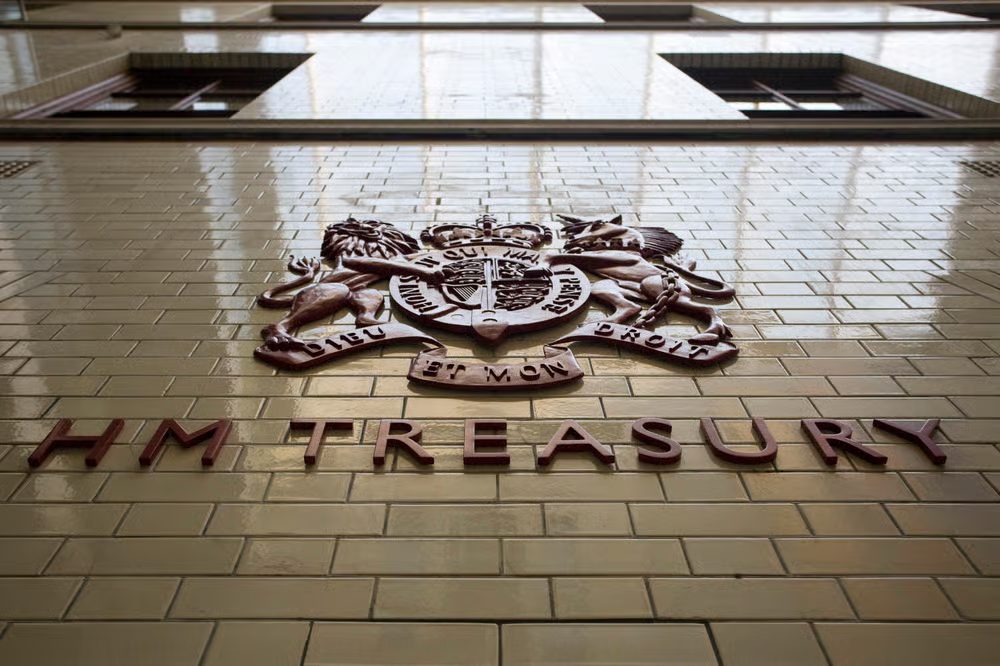UK Treasury Cracks Down: £300 Fines for Crypto Tax Dodgers Kick In January 2026
Britain’s taxman is sharpening its claws for crypto holders. Starting January 2026, HMRC will slap £300 penalties on digital asset investors caught skirting tax rules—because nothing says 'innovation' like bureaucrats chasing decentralized money with analog fines.
The move targets the growing grey zone of crypto tax evasion, where pseudonymous wallets and offshore exchanges have let some traders fly under the radar. But with regulators now treating crypto like any other asset class, the 'wild west' days may be numbered.
One City analyst quipped: 'HMRC finally found a use case for blockchain—tracking tax cheats.' Meanwhile, crypto veterans shrug—£300 is barely a gas fee on Ethereum these days.
 Source: PA Archive (The Standard)
Source: PA Archive (The Standard)
Exchequer Secretary James Murray emphasized that the initiative is part of a broader strategy to eliminate tax avoidance, stating that the rules will ensure “tax dodgers have nowhere to hide” and the government will be able to fund essential public services through improved compliance.
Both crypto users and service providers will face financial penalties for non-compliance, creating a dual-layer enforcement mechanism that holds both parties accountable for every transaction.
New Compliance Framework Puts Pressure on Platforms and Users
Crypto service providers operating in the UK will bear significant responsibility under the new framework, as they are required to collect and verify customer tax information before facilitating any transactions.
Platforms that fail to obtain accurate tax reference numbers or provide complete transaction records to HM Revenue and Customs will face their own financial penalties, which are currently not disclosed.
The reporting requirements extend beyond simple trading activities to encompass staking rewards, DeFi yield farming, NFT transactions, and any other crypto-related income generation.
Non-compliant individuals face penalties of £300 per instance, while service providers risk separate fines for failing to maintain accurate records or provide the required information to tax authorities.
Murray also described the framework as part of a broader effort to ensure “everyone pays their fair share,” positioning the crackdown as essential for maintaining public funding for nurses, police, and other vital services.
Service providers will need to adapt their onboarding processes and customer management systems to accommodate the new data collection requirements, potentially increasing operational costs that could be passed to users.
Global Momentum Builds Around Crypto Tax Enforcement
Britain’s move is part of a worldwide trend toward stricter cryptocurrency tax compliance, with multiple jurisdictions implementing similar reporting frameworks designed to capture previously hidden digital asset profits.
The European Union’s DAC8 directive, which takes effect in 2026, will require crypto platforms across all member states to share customer transaction data with tax authorities, creating a continent-wide information exchange network.
![]() European Parliament Supports DAC8 Crypto Tax Rule by an Overwhelming Margin
European Parliament Supports DAC8 Crypto Tax Rule by an Overwhelming Margin
Lawmakers in the European Parliament have expressed support for the eighth iteration of the Directive on Administrative Cooperation (DAC8).#CryptoNews #EUhttps://t.co/pn02rJg4qM
Recent data from Denmark reveals the scale of the challenge facing tax authorities, with over 90% of crypto traders failing to report gains despite mandatory exchange reporting requirements implemented in 2019.
Nordic countries appear particularly aggressive in their approach, with Norway estimating that roughly 88% of crypto traders omitted gains in 2023, while Denmark is now considering a 42% tax on unrealized cryptocurrency gains.
Thailand has taken the opposite approach, offering a five-year personal income tax exemption on crypto capital gains for transactions conducted through licensed platforms, seeking to attract international investment and establish itself as a digital asset hub.
As it stands now, some jurisdictions are tightening enforcement, while others compete for crypto capital through favorable tax treatment.
These approaches, however, create both opportunities and challenges for crypto investors, who may increasingly start to consider tax implications when choosing where to trade or establish residency.

